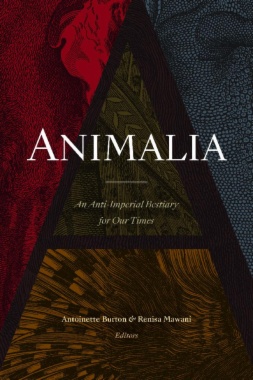From yaks and vultures to whales and platypuses, animals have played central roles in the history of British imperial control. The contributors to Animalia analyze twenty-six animals—domestic, feral, predatory, and mythical—whose relationship to imperial authorities and settler colonists reveals how the presumed racial supremacy of Europeans underwrote the history of Western imperialism. Victorian imperial authorities, adventurers, and colonists used animals as companions, military transportation, agricultural laborers, food sources, and status symbols. They also overhunted and destroyed ecosystems, laying the groundwork for what has come to be known as climate change. At the same time, animals such as lions, tigers, and mosquitoes interfered in the empire's racial, gendered, and political aspirations by challenging the imperial project’s sense of inevitability. Unconventional and innovative in form and approach, Animalia invites new ways to consider the consequences of imperial power by demonstrating how the politics of empire—in its racial, gendered, and sexualized forms—played out in multispecies relations across jurisdictions under British imperial control.
Contributors. Neel Ahuja, Tony Ballantyne, Antoinette Burton, Utathya Chattopadhyaya, Jonathan Goldberg-Hiller, Peter Hansen, Isabel Hofmeyr, Anna Jacobs, Daniel Heath Justice, Dane Kennedy, Jagjeet Lally, Krista Maglen, Amy E. Martin, Renisa Mawani, Heidi J. Nast, Michael A. Osborne, Harriet Ritvo, George Robb, Jonathan Saha, Sandra Swart, Angela Thompsell
- Cover
- Contents
- Acknowledgments����������������������
- Introduction: Animals, Disruptive Imperial Histories, and the Bestiary Form \ ANTOINETTE BURTON AND RENISA MAWANI
- Some Ways to Read This Book
- A is for Ape \ AMY E. MARTIN
- B is for Boar \ ANNALIESE CLAYDON
- C is for Cattle \ RENISA MAWANI
- D is for Dog \ HEIDI J. NAST
- E is for Elephant \ JONATHAN SAHA
- F is for Fox \ GEORGE ROBB
- G is for Giraffe \ ANGELA THOMPSELL
- H is for Horse \ JAGJEET LALLY
- I is for Ibis \ RENISA MAWANI
- J is for Jackal (and Dingo) \ ISABEL HOFMEYR
- K is for Kiwi \ TONY BALLANTYNE
- L is for Lion \ ANTOINETTE BURTON
- M is for Mosquito \ NEEL AHUJA
- N is for North Atlantic Right Whale \ KRISTA MAGLEN
- O is for Okapi \ SANDRA SWART
- P is for Platypus \ ANNALIESE CLAYDON
- Q is for Quagga \ HARRIET RITVO
- R is for Raccoon \ DANIEL HEATH JUSTICE
- S is for Scorpion \ ANTOINETTE BURTON
- T is for Tiger \ DANE KENNEDY
- U is for Unicorn \ UTATHYA CHATTOPADHYAYA
- V is for Vulture \ UTATHYA CHATTOPADHYAYA
- W is for Whale \ JONATHAN GOLDBERG-HILLER
- X is for Xerus \ UTATHYA CHATTOPADHYAYA
- Y is for Yak \ PETER H. HANSEN
- Z is for Zebu \ MICHAEL A. OSBORNE
- Contributors
- Index
- A
- B
- C
- D
- E
- F
- G
- H
- I
- J
- K
- L
- M
- N
- O
- P
- Q
- R
- S
- T
- U
- V
- W
- X
- Y
- Z

